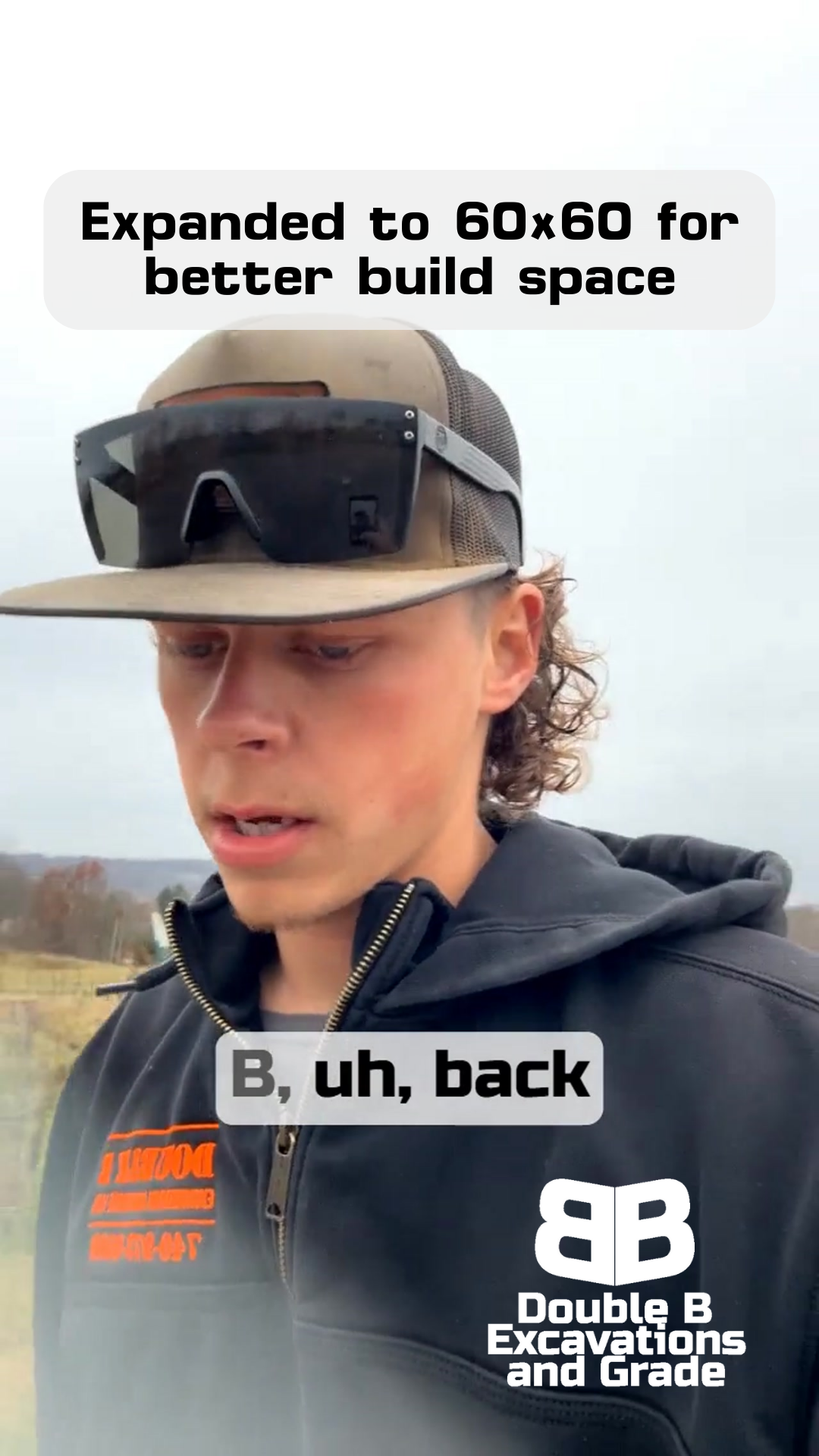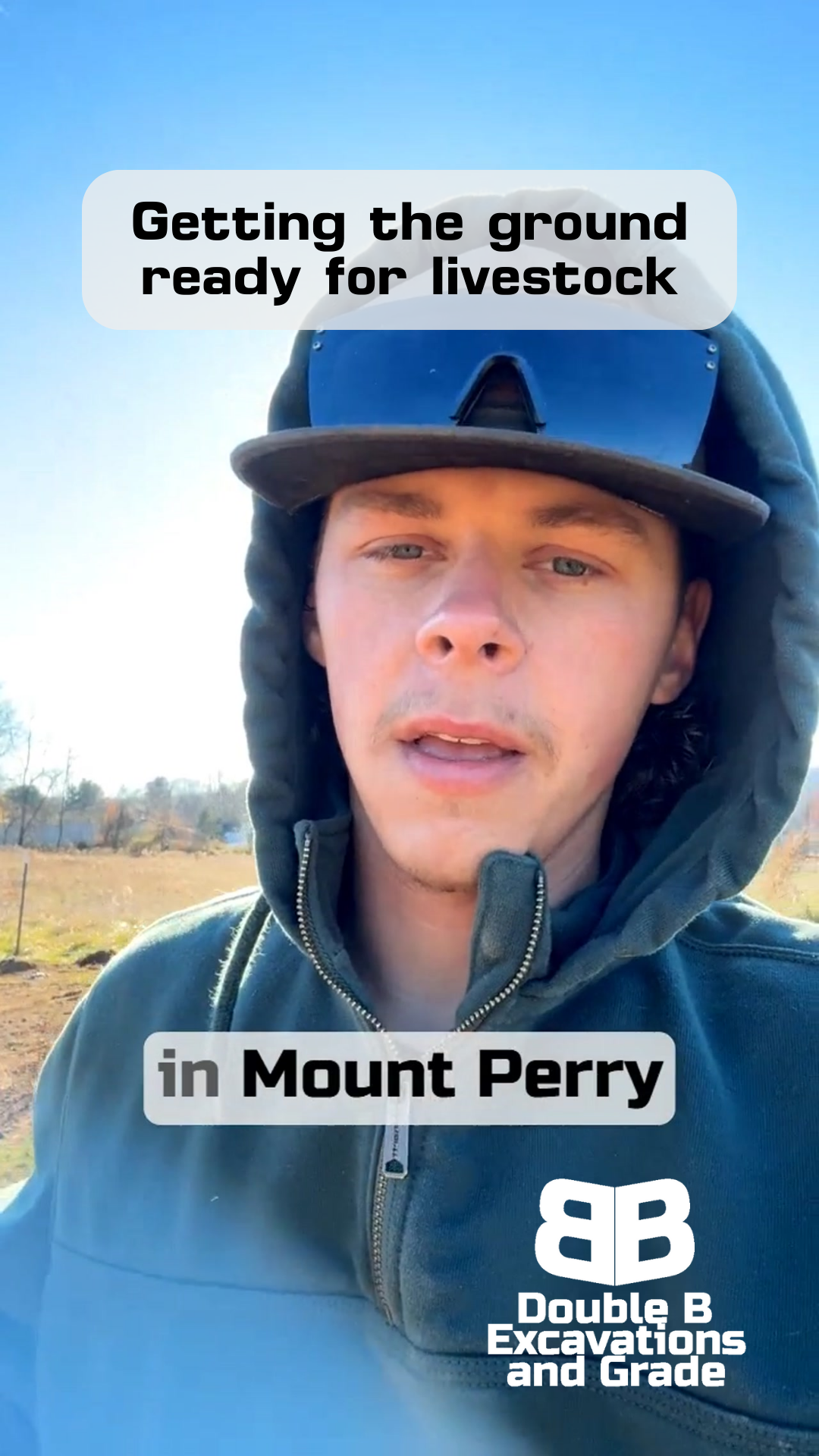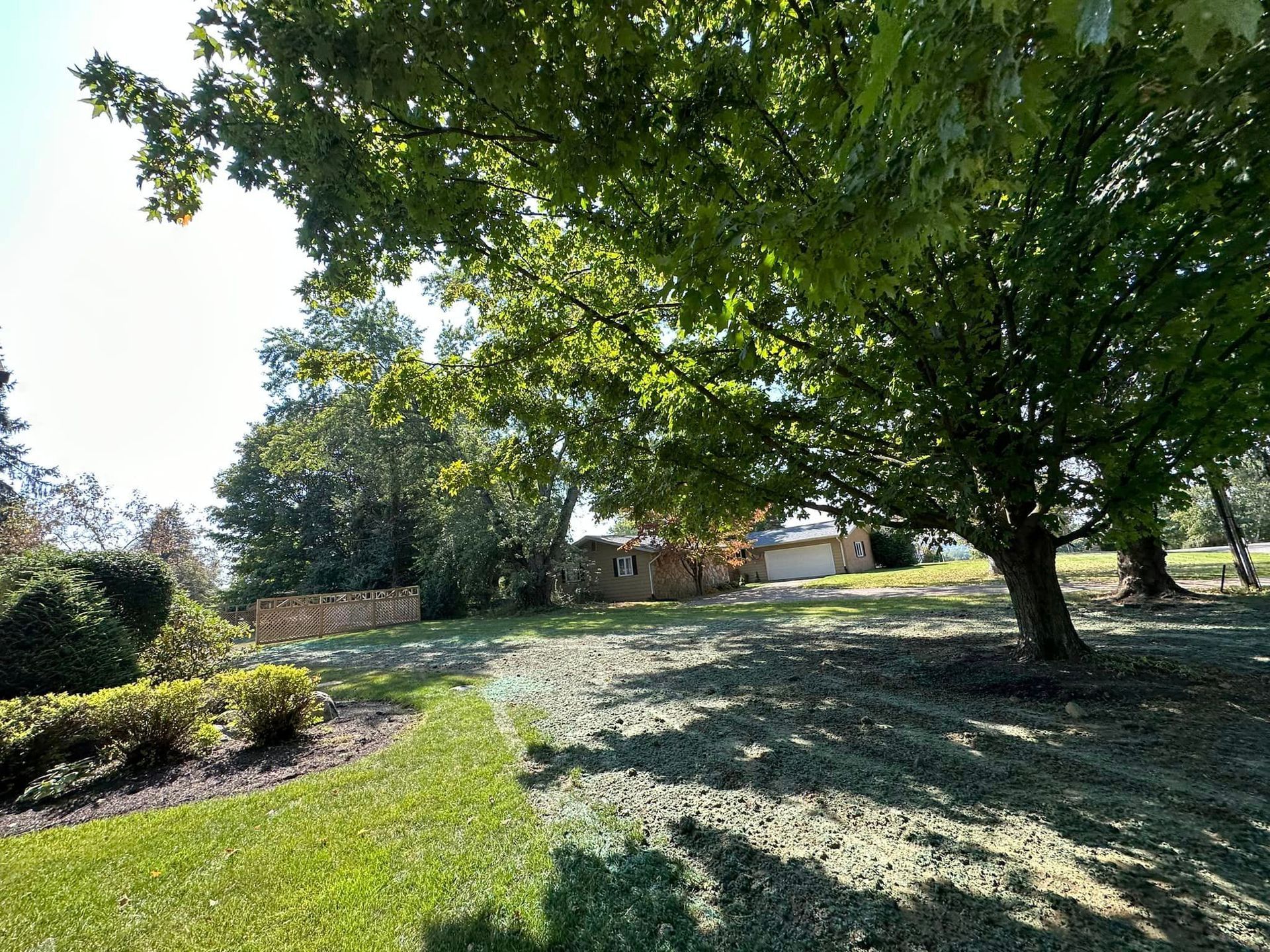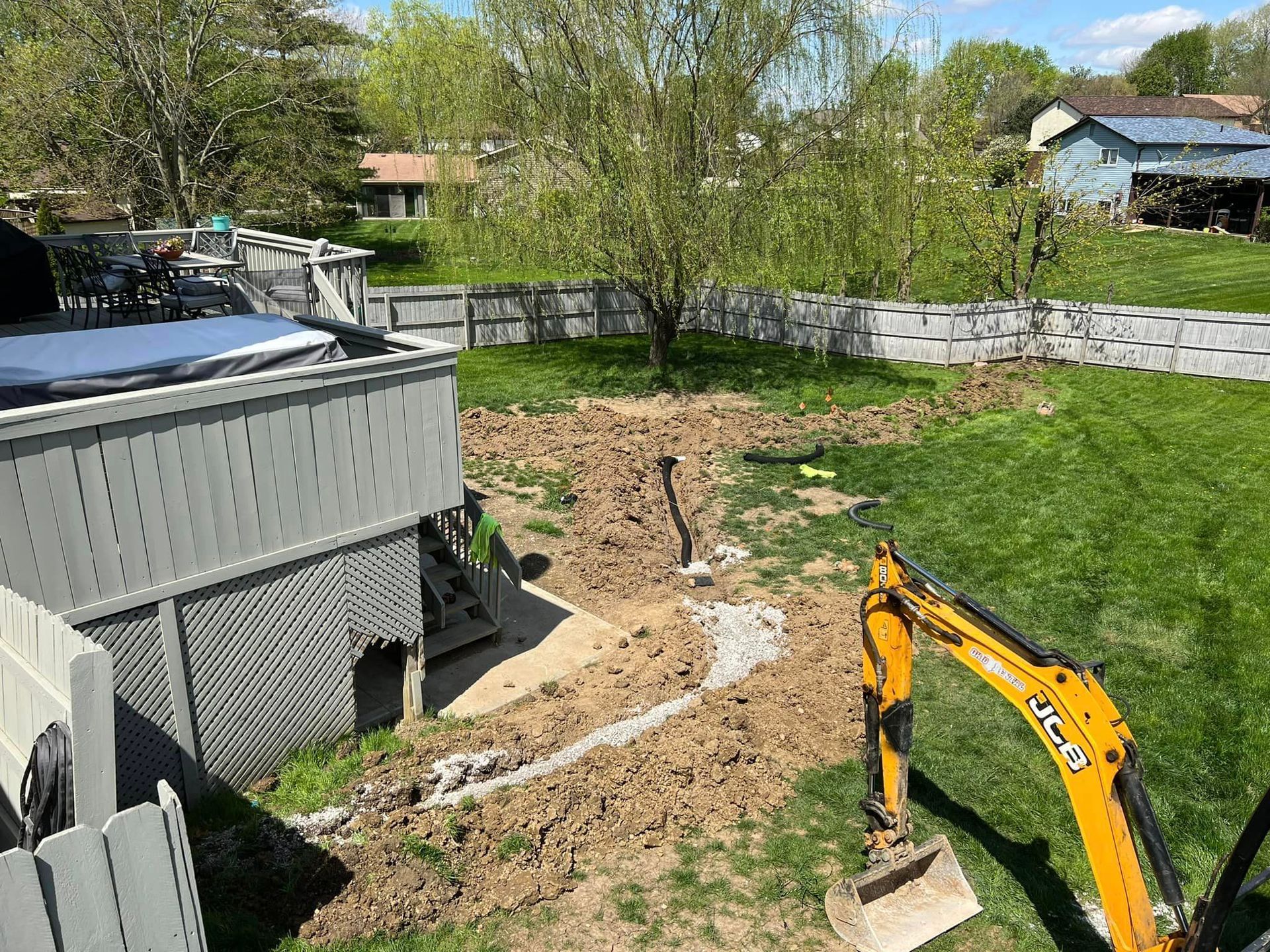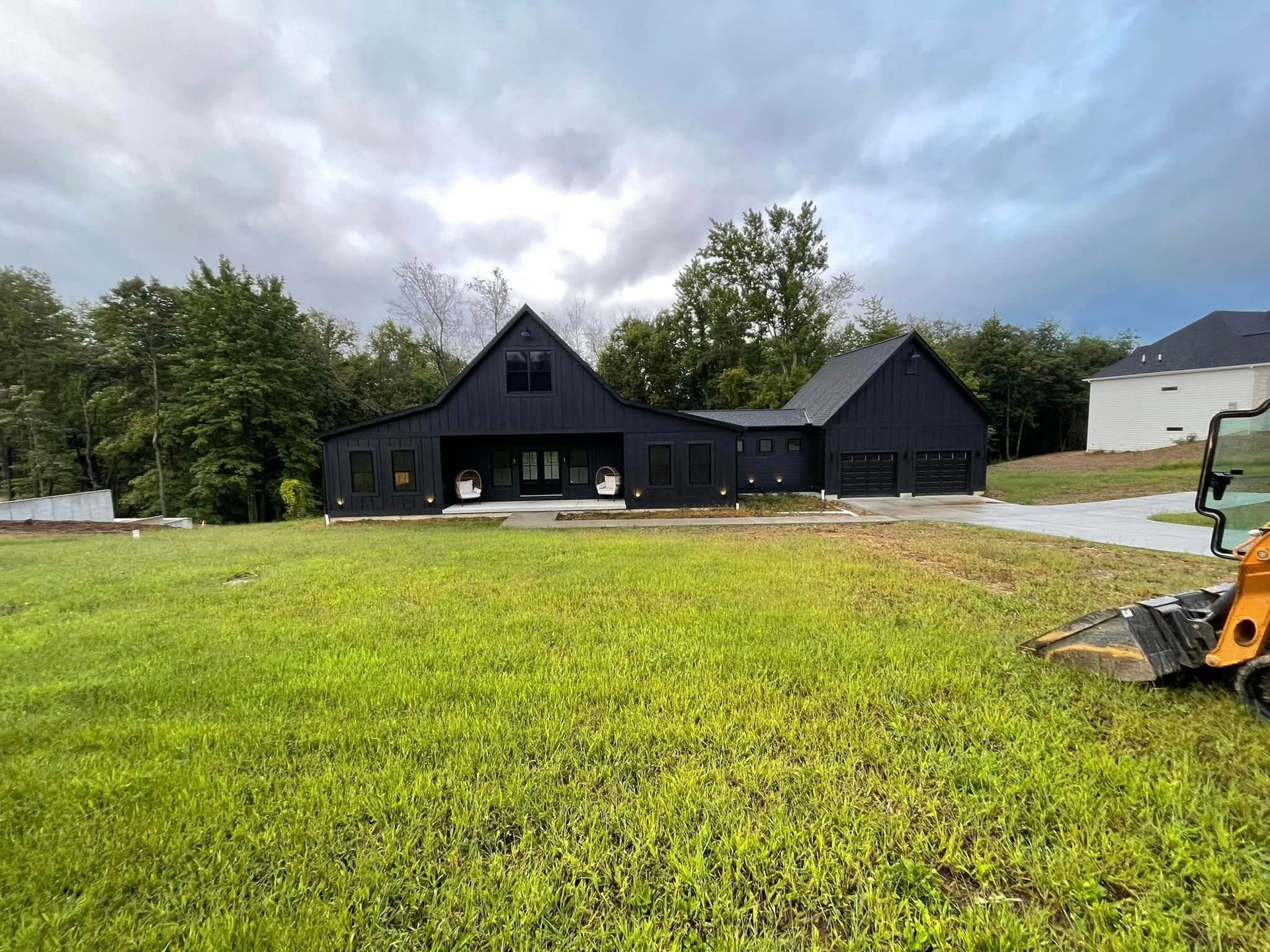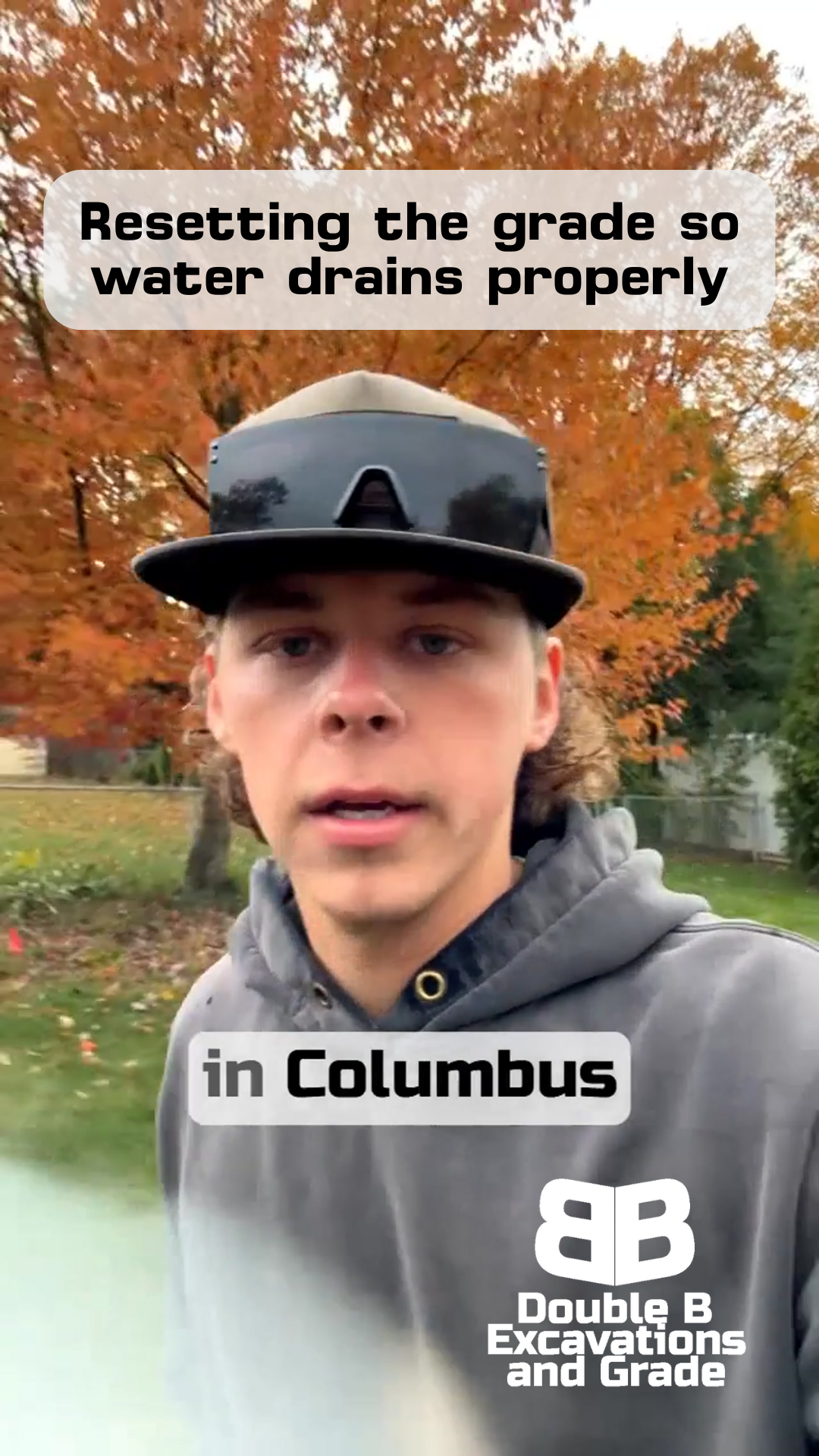Retaining Wall Construction in Heath: When Rain Forces Project Adjustments
Double B Excavations & Grade LLC
When Nature Has Other Plans
ADAPTING TO WEATHER CHALLENGES WITHOUT COMPROMISING QUALITY
In construction, some days don't go exactly as planned.
That's exactly what we're dealing with on day two of our retaining wall project in Heath.
While the wall itself is standing strong, the rain has forced us to make some smart adjustments to our timeline.
This is the kind of situation that separates professional contractors from the rest - it's not just about what you build, but how you handle the challenges that come up along the way.
We could rush through the dirt work in the rain, but that's not how we do things at Double B.
Instead, we're taking the time to do it right, even if that means making some schedule adjustments.
Because at the end of the day, our reputation is built on quality work, not quick fixes.
Welcome to Double B!
Project Overview
Our Heath project showcases a prime example of dealing with real-world construction challenges. We're two days into building a retaining wall, and while the wall itself is complete, Mother Nature decided to throw us a curve ball. The rain might be slowing us down, but it hasn't stopped us from maintaining our standards.
The wall is looking exactly how we want it - solid, straight, and ready to do its job. But there's still dirt work to be finished, and trying to grade wet soil is asking for trouble. This is where experience comes in handy - knowing when to push forward and when to wait for better conditions.
Managing Weather Delays
Let's talk about what happens when rain hits your job site. First thing to understand is that working with wet soil isn't just difficult - it can actually ruin the final product. When you're dealing with dirt work and grading, you need the right soil conditions. Trying to grade wet soil is like trying to spread peanut butter that's too runny - it just doesn't work right.
So instead of forcing it, we adjust. We focus on the parts of the job we can do right now, like cleaning up the street and securing the site. This isn't just about being neat - it's about being professional and respectful to the neighborhood.
The Clean-Up Priority
You might wonder why we're out there with shovels and brooms in the rain. Simple answer: because it needs to be done. A clean job site isn't just about looks - it's about safety and professionalism. That means getting out there with hand tools, cleaning the street, and making sure we're not leaving any mess for the neighbors to deal with.
Even if we can't finish all the dirt work today, we can still make sure the road is clean and safe. It might seem like a small detail, but these are the things that matter. A muddy street isn't just unsightly - it's unsafe and unprofessional. Not on our watch.
Quality Control Decisions
Here's something we've learned over years of doing this work: rushing to finish in bad conditions always costs more in the long run. Sure, we could push through and grade the dirt today, but what would happen? The soil wouldn't compact right, the grade wouldn't hold, and we'd end up with issues down the road.
Instead, we make the call to wait for drier conditions. This means we'll need to come back, but it also means the final product will be exactly what our customer paid for - a properly built retaining wall with correctly graded soil around it. Sometimes doing the job right means knowing when to wait.
Moving Forward
So what happens next? Once the weather clears up and the soil dries out enough, we'll be back to finish the grading work. This isn't about leaving a job half-done - it's about making sure every step is done right. We've got that pile of dirt to move and grade properly, and we'll do it when conditions are right.
Our customers appreciate knowing exactly where things stand. That's why we're clear about our timeline adjustments. Weather delays are just part of construction in Ohio, but how you handle them makes all the difference. We keep our customers in the loop and make sure they understand why these decisions matter for the final result.
Closing
When it comes to retaining walls - or any construction project really - there's a right way and an easy way. The easy way would be to rush through in the rain and call it done. But that's not who we are. At Double B, we believe in doing things the right way, even if that means coming back another day.
Looking Forward
If you're planning a retaining wall project in Heath or anywhere in central Ohio, remember that quality work sometimes takes a little extra time. Weather delays might seem frustrating, but they're a lot less frustrating than having to fix a rushed job months down the road.
Need help with a retaining wall project? We're always happy to talk through the process and explain how we handle whatever challenges might come up - rain or shine. Because at Double B, we're not just building walls - we're building them to last.
